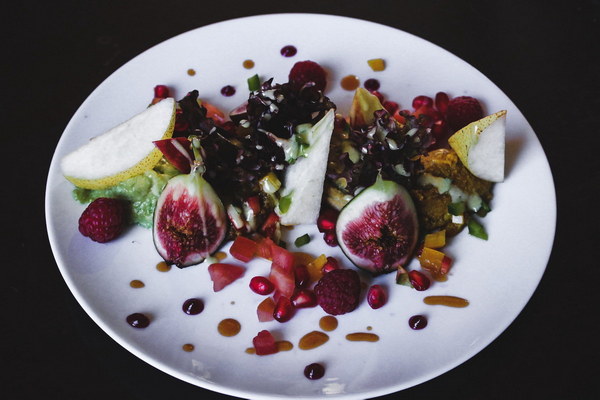Banishing Damp Cold The Power of Damp-Relieving Tea
In the realm of traditional Chinese medicine, the concept of damp cold is a common ailment that can affect one's health and well-being. It refers to a condition where the body is affected by cold and dampness, leading to various symptoms such as fatigue, weight gain, and joint pain. To combat this, many turn to natural remedies like damp-relieving tea. This article delves into the world of damp-relieving tea, exploring its benefits, ingredients, and how it can help you banish damp cold for good.
Damp cold, also known as Shi Han in Chinese medicine, is characterized by symptoms such as aching joints, bloating, and a feeling of coldness in the body. It occurs when the body's internal balance is disrupted, allowing dampness and cold to accumulate. To restore balance, it's essential to use remedies that can expel dampness and warm the body.
One such remedy is damp-relieving tea, a traditional herbal concoction designed to alleviate damp cold symptoms. The tea typically contains a blend of natural herbs that have been used for centuries to expel dampness and improve overall health.
Here are some of the key ingredients found in damp-relieving tea:
1. Cang Er Zi (Cang Er Zi Fructus): This herb is known for its ability to drain dampness and clear heat. It is often used to treat symptoms such as sinus congestion and watery eyes.
2. Fu Ling (Poria): Also known as mushroom, Fu Ling is a natural diuretic that helps to eliminate dampness from the body. It is often used in combination with other herbs to improve digestion and boost the immune system.
3. Bai Zhu (Atractylodes macrocephala): This herb is a staple in damp-relieving formulas, as it helps to drain dampness and strengthen the spleen. It is also known for its ability to alleviate bloating and improve appetite.
4. Chen Pi (Pericarpium Citri Reticulatae): This dried peel of the tangerine fruit is used to promote digestion and reduce dampness. It is also believed to aid in weight loss and improve mood.
5. Ren Shen (Panax ginseng): Known for its immune-boosting properties, Ren Shen is often included in damp-relieving teas to strengthen the body's defenses against dampness and cold.
The process of making damp-relieving tea is relatively simple. First, gather the required ingredients and chop them into small pieces. Then, place the herbs in a pot and add water. Boil the mixture for about 20 minutes, strain the tea, and let it cool. You can add honey or lemon to enhance the taste if desired.
The benefits of damp-relieving tea are numerous. Here are some of the advantages:
1. Alleviates damp cold symptoms: By expelling dampness and warming the body, damp-relieving tea can help reduce symptoms such as joint pain, bloating, and fatigue.
2. Improves digestion: Many of the herbs used in damp-relieving tea, such as Bai Zhu and Chen Pi, have been shown to aid in digestion and reduce bloating.
3. Boosts the immune system: Herbs like Ren Shen and Fu Ling can help strengthen the immune system, making the body more resilient to infections and diseases.
4. Promotes weight loss: Dampness and coldness can lead to weight gain, and damp-relieving tea can help combat this issue by expelling dampness and promoting healthy weight loss.
5. Enhances mood: Some ingredients in damp-relieving tea, like Chen Pi, have mood-enhancing properties that can help alleviate stress and improve overall well-being.

To experience the benefits of damp-relieving tea, it is essential to drink it regularly. However, it is important to consult with a healthcare professional before starting any new treatment, especially if you have pre-existing health conditions or are taking medication.
In conclusion, damp-relieving tea is a powerful tool in the fight against damp cold. By using natural ingredients and following the traditional methods of Chinese medicine, this herbal concoction can help you banish damp cold for good, leading to improved health and well-being.









